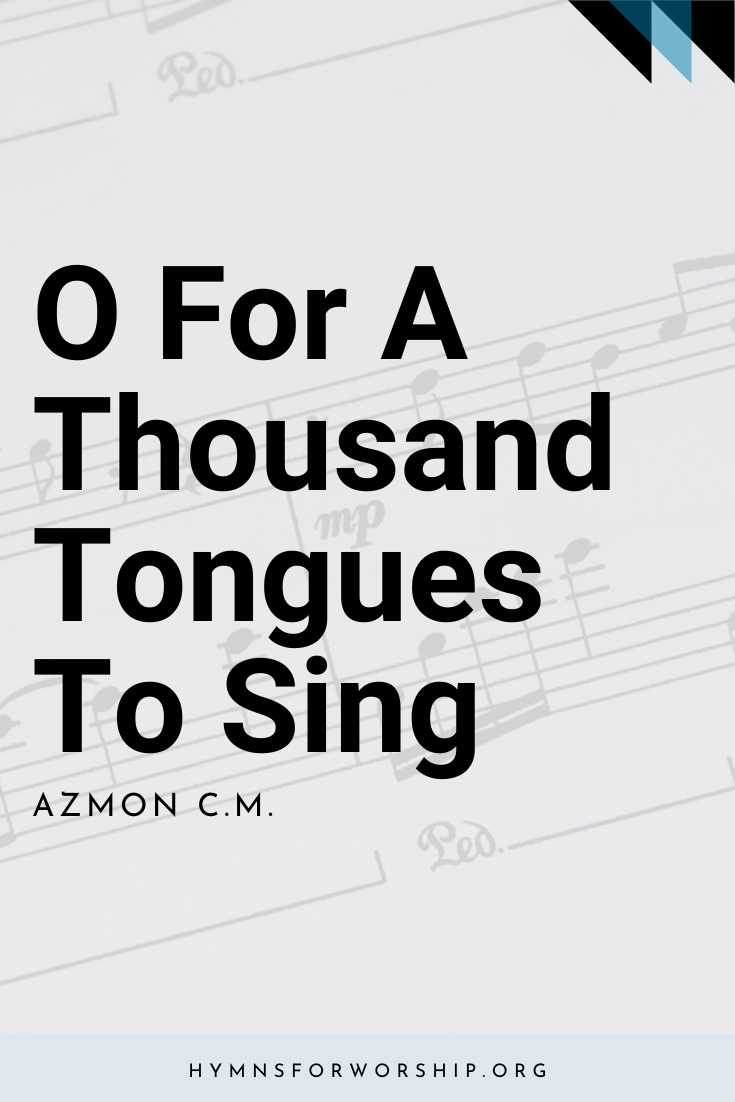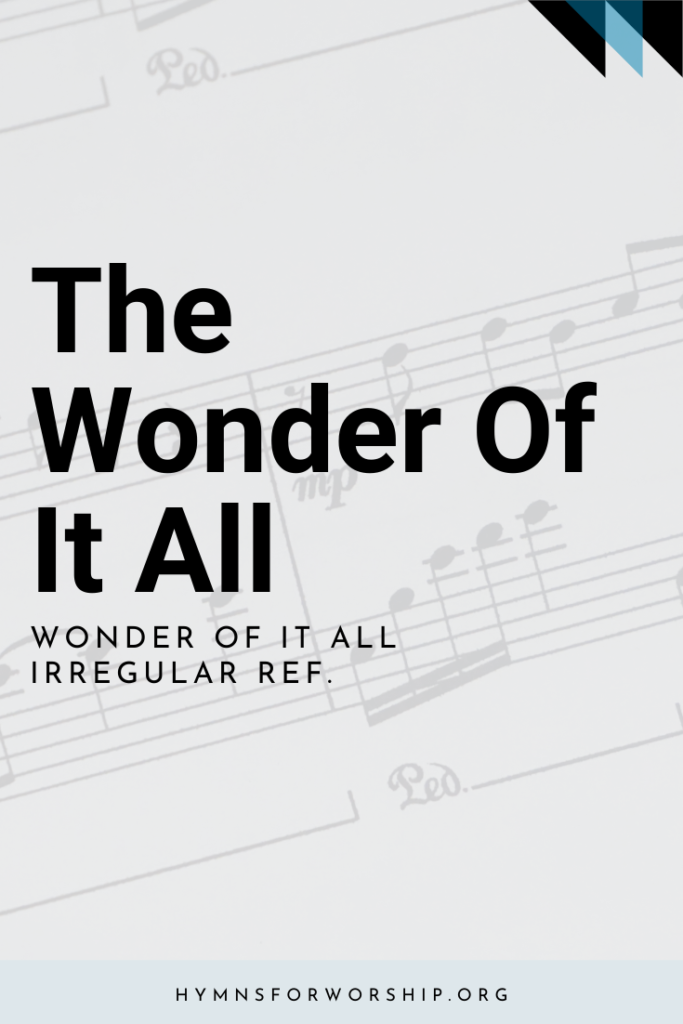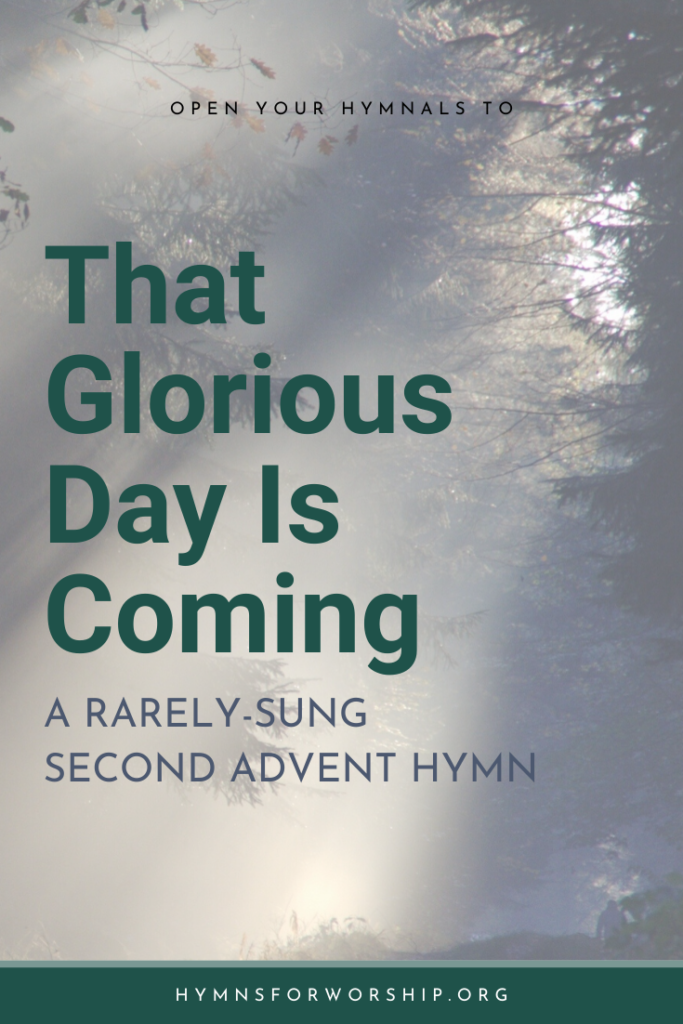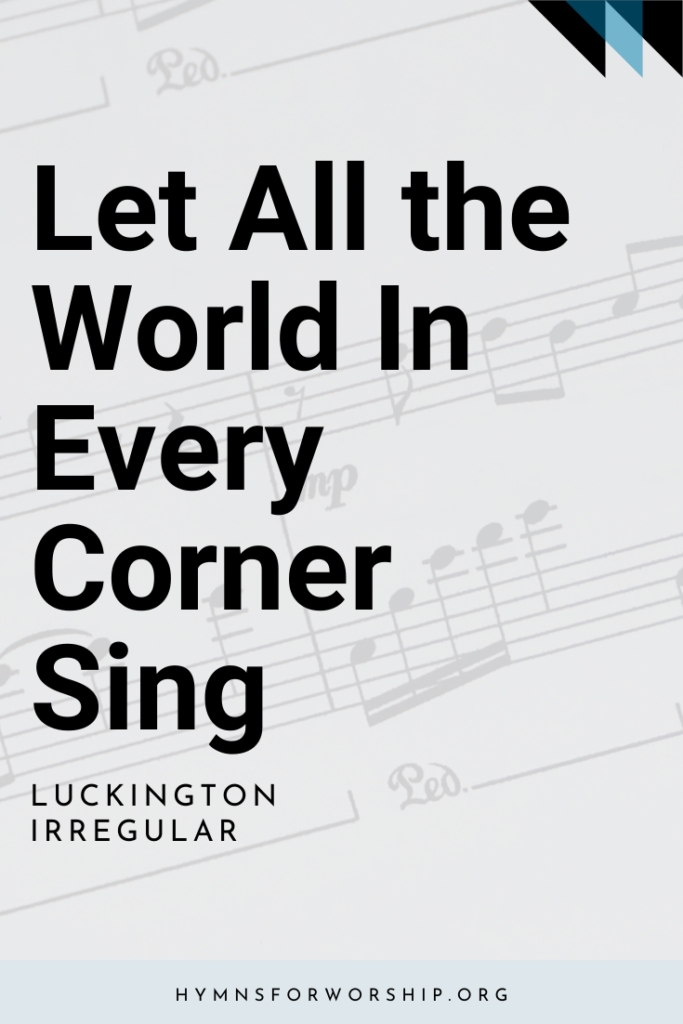JESUS CHRIST >> GLORY & PRAISE
SDAH 250
O for a thousand tongues to sing
my great Redeemer’s praise,
the glories of my God and King,
the triumphs of his grace!
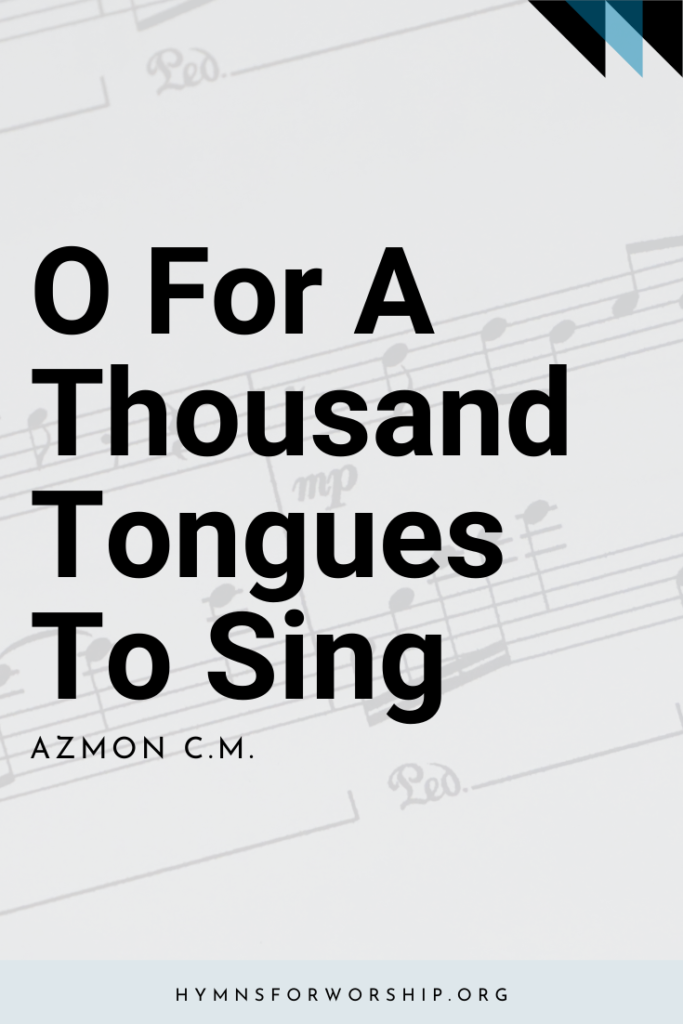

Text
1
O for a thousand tongues to sing
my great Redeemer’s praise,
the glories of my God and King,
the triumphs of his grace!
2
My gracious Master and my God,
assist me to proclaim,
to spread through all the earth abroad
the honors of thy name.
3
Jesus! the name that charms our fears,
that bids our sorrows cease;
’tis music in the sinner’s ears,
’tis life, and health, and peace.
4
He breaks the power of canceled sin,
he sets the prisoner free;
his blood can make the foulest clean;
his blood availed for me.
5
He speaks, and listening to his voice,
new life the dead receive;
the mournful, broken hearts rejoice,
the humble poor believe.
6
Hear him, ye deaf; his praise, ye dumb,
your loosened tongues employ;
ye blind, behold your Savior come,
and leap, ye lame, for joy.

Hymn Info
Biblical Reference
(a) Ps 96:2, 3 (b) Ps 96:10 (d) Rev 1:5
Author
Charles Wesley (1707-1788)
Year Published
1739
Hymn Tune
AZMON
Metrical Number
C.M.
Composer
Carl G. Glaser (1784-1829)
Arranged
Lowell Mason (1792-1872)
Theme
GLORY AND PRAISE
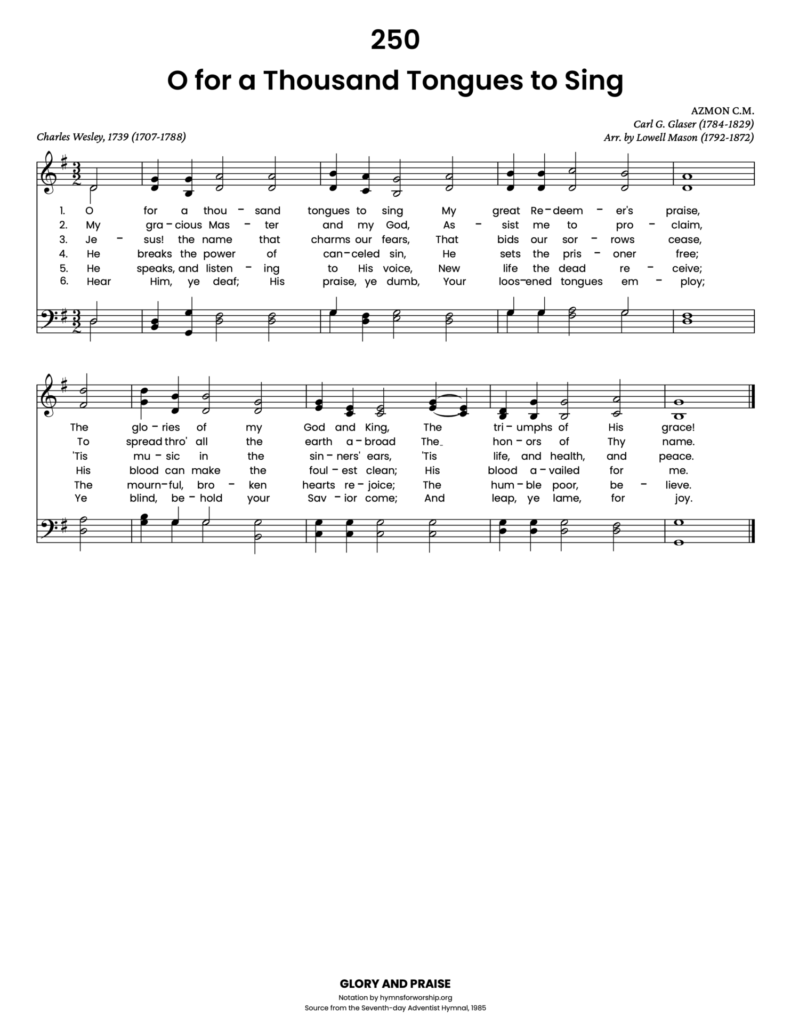
Get the hymn sheet in other keys here
Recommended Reading
Charles was the other Wesley. Alongside his brother John who was considered the main guy behind the founding of Methodism, it was Charles’ hymns that pushed through the envelope of being “just another religion.” His lasting and well-known hymns have captivated Christians all around the world. Through his poetic lines, we are able to sing many hymns with such deep theology.
It was said that he wrote 8,989 hymns. That’s 10 lines of poetry every single day for 50 years. And we are privileged to have sung some of those hymns. Tell me, don’t these hymns ring a bell for you? Continue reading.
Notes
Make each hymn more meaningful with these helpful tools: Short, ready-to-use hymn introductions for church bulletins, multiple ways to introduce a hymn based on your worship theme and in-depth history and insights to enrich your song service.

